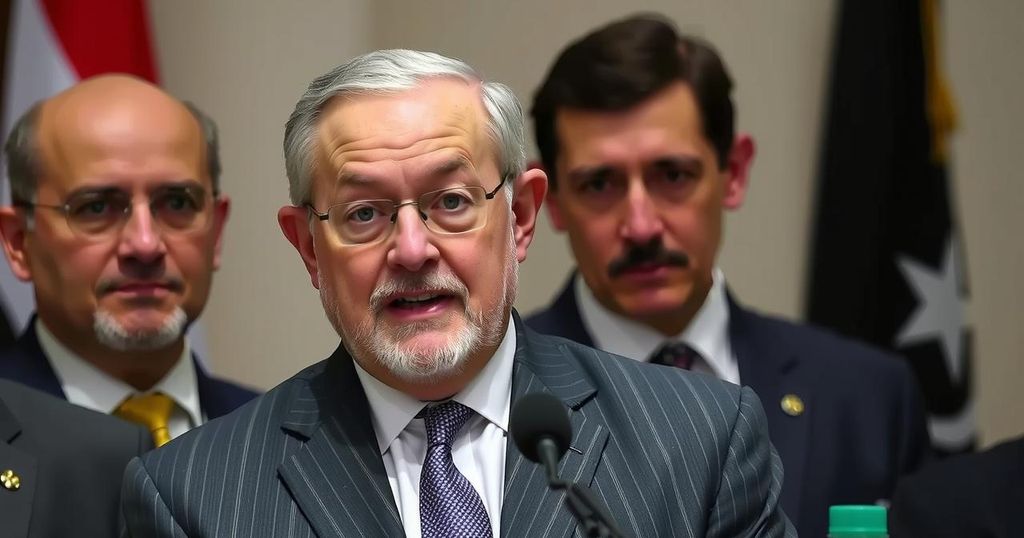UAE’s Anwar Gargash raised concerns over the Islamist affiliations of Syria’s new leadership after they ousted President Bashar al-Assad. While acknowledging positive messages of unity, he warned of connections to groups like the Muslim Brotherhood and Al-Qaeda. Gargash also criticized Israeli airstrikes in Syria, advocating for a thoughtful approach to avoid repeating past regional conflicts.
A senior official from the United Arab Emirates (UAE) has expressed concern regarding the Islamist connections of the new leadership in Syria, following their successful ousting of President Bashar al-Assad. Anwar Gargash, presidential adviser of the UAE, stated at the World Policy Conference in Abu Dhabi that while the new rulers of Syria have conveyed messages of unity and inclusivity, their ties to groups such as the Muslim Brotherhood and Al-Qaeda raise serious alarms. Gargash noted the importance of maintaining vigilance in light of past regional conflicts, particularly referencing the brutal actions of the Islamic State in recent years.
The Syrian offensive, which saw Islamist-led forces dismantle Assad’s regime after over a decade of civil turmoil, was led by Hayat Tahrir al-Sham (HTS), an organization with roots in Al-Qaeda that many Western governments classify as a terrorist entity. Although HTS has attempted to moderate its public stance, skepticism remains about their true intentions and governance capabilities.
In addition to his concerns about Syria’s leadership, Gargash criticized the recent Israeli airstrikes targeting strategic military sites in Syria. He characterized these actions as unwise politics, arguing they undermine stability during a pivotal transition period in the region. Gargash underscored the necessity for the Arab world to learn from historical mistakes and approach the evolving situation in Syria with cautious optimism.
The recent developments in Syria mark a significant shift in power following the long-standing rule of President Bashar al-Assad, who faced severe opposition in a civil war lasting nearly 14 years. The leadership now in place has ties to Islamist factions that have previously been associated with terrorism. The implications of this new regime raise questions about governance, stability, and the potential for future conflict in the region, particularly given the past actions of extremist groups. The UAE’s position reflects broader regional anxieties about these looming threats and the desire to foster a stable governance in Syria. Furthermore, the UAE has taken a pragmatic approach to its foreign relations, including normalizing ties with Israel, which adds another layer of complexity to the regional landscape and the dynamics at play in Syria following the recent transition in leadership.
In summary, the UAE has expressed notable apprehensions concerning Syria’s new leadership, highlighting the Islamist affiliations that potentially threaten regional stability. Anwar Gargash’s reflections during the World Policy Conference suggest that while there is a cautious optimism for unity in Syria, the past experiences with extremist groups necessitate a vigilant approach. Moreover, the ongoing Israeli airstrikes complicate the geopolitical context, prompting calls for thoughtful engagement from Arab nations to avoid past errors and to support a balanced path forward for Syria.
Original Source: www.hindustantimes.com







